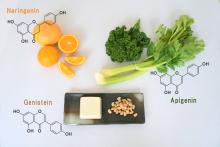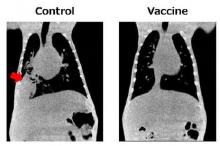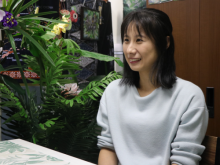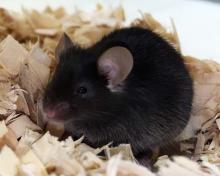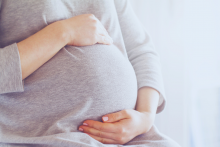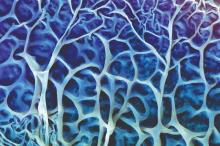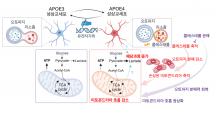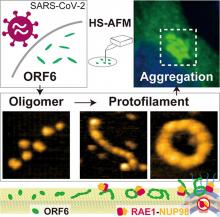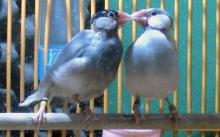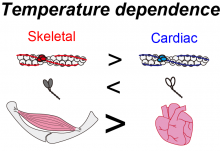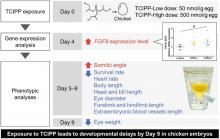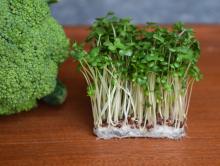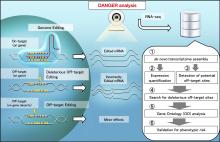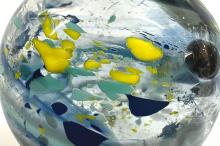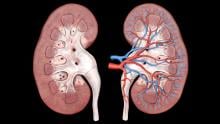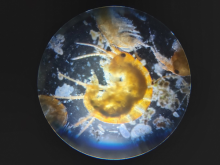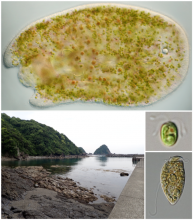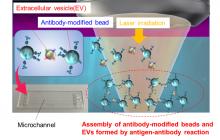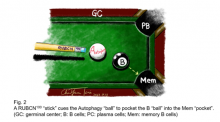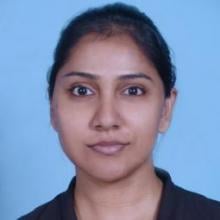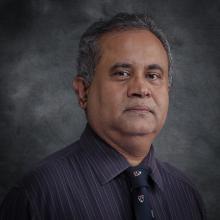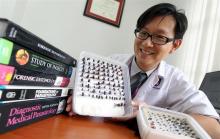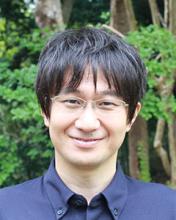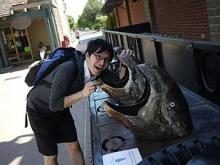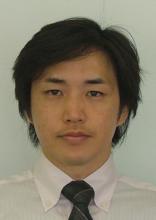Biology
News
30 Nov 2023
An international team of researchers led by Osaka Metropolitan University has elucidated the process by which the major flavonoids naringenin, apigenin, and genistein are metabolized in the body. These findings are fundamental in elucidating the correlation between the metabolism of flavonoids in the body and their potential health benefits.
30 Nov 2023
A new bacterial species discovered at the deep-sea hydrothermal vent site ‘Crab Spa’ provides a deeper understanding of bacterial evolution.
29 Nov 2023
Mycorrhiza biofertilizer Uttam Superrhiza has been named as the winner of the Applied Microbiology International Product of the Year 2023.
The prestigious prize recognizes a commercial product derived from microbiology research, with special consideration given to those products that have addressed the United Nations Sustainable Development Goals.
27 Nov 2023
A research team from Osaka Metropolitan University has successfully developed a novel pneumococcal vaccine by combining the team’s proprietary mucosal vaccine technology with pneumococcal surface proteins that can cover a wide range of serotypes. Experiments were conducted using mice and macaques and it was confirmed that pneumonia caused by pneumococcal infection was clearly suppressed in the target groups of animals inoculated with the vaccine.
21 Nov 2023
Out of this living laboratory emerged unexpected insights on coexistence from an “unusual” source.
20 Nov 2023
A new technique allows researchers to map how the cellular ‘skeleton’ adapts to external stress.
16 Nov 2023
The winners of the Applied Microbiology International Horizon Awards were announced at the prestigious Environmental Microbiology lecture 2023, held at BMA House in London on November 16.
14 Nov 2023
Cancer stem cells cause the aging of macrophages in mice with healthy immune systems, creating conditions for the formation of tumors.
13 Nov 2023
New study finds prior dengue antibodies substantially raise risk of microcephaly, foetal defects with Zika infection.
10 Nov 2023
Expedition led by Indonesian NGO YAPPENDA with Cenderawasih University students finds two species lost to science: Attenborough’s long-beaked echidna—one of Re:wild’s most wanted lost species—and Mayr’s honeyeater.
09 Nov 2023
New shrimp species in ancient hot spring, Super sprouts, How "warm-ups" work, New antiviral candidate, Solving voltage decay and from our blog: A sustainable future shines in TIE 2023. Read all in the latest Editor's Choice.
08 Nov 2023
Applied Microbiology International (AMI) has launched its reviewer training scheme for the journal Letters in Applied Microbiology (LAM), building upon its development opportunities for early career scientists in journal publishing.
03 Nov 2023
- Confirmed the link between cholesterol accumulated in lysosomes and decreased mitochondrial respiration due to the APOE4 genotype and proposed a possible reason that explains a decline in brain function
- Research results published in Cell Reports
02 Nov 2023
• Duke-NUS scientists’ study shows metabolic elasticity is driven by genes.
• It is also dependent on diet, declining with a high-fat diet, while improving with intermittent fasting.
27 Oct 2023
Researchers at Kanazawa University report in the Journal of Physical Chemistry Letters high-speed atomic force microscopy studies that shed light on the possible role of the open reading frame 6 (ORF6) protein COVID19 symptoms.
25 Oct 2023
Pair-bonded Java sparrows show enlarged eye rings to signal breeding readiness.
24 Oct 2023
Research out of Osaka University investigated the effect of increased cell temperature on the contractility of skeletal muscle and cardiac muscle by heating the muscle proteins using advanced microscopical techniques. The findings indicated that skeletal muscle is more sensitive to increases in temperature than cardiac muscle, and that heating can rapidly activate the contractile proteins of skeletal muscle, thereby improving muscle performance.
20 Oct 2023
Evaluation of developmental toxicity in early chicken embryos exposed to tris(2-chloroisopropyl) phosphate

20 Oct 2023
This study examined how the origin (wild or hatchery-reared), feeding area (Baltic Sea mainstem, Bosnian Sea, and Gulf of Finland), and organic halogen compound (OHC) concentrations of Baltic Sea Atlantic salmon (Salmo salar) affect the salmon liver proteome, transcriptome, and oxidative stress markers. Results suggest that the Baltic salmon liver proteome, together with the transcriptome, is influenced more by OHC concentrations and oxidative stress levels in the feeding area than by their origin.
20 Oct 2023
Structural characteristics of environmental pollutants and computer simulations predict effects on the endocrine system of seals
20 Oct 2023
A research team from Osaka Metropolitan University has found that polysulfides are abundant in broccoli sprouts. They found that the amount of polysulfides increased dramatically during growth, by an approximately 20-fold in seeds by the fifth day of germination. Furthermore, a comprehensive analysis of the polysulfides detected a number of polysulfide candidates whose structures have not yet been determined. The identification of these unknown polysulfides and detailed analysis of their pharmacological activities are expected to enable the development of new preventive and therapeutic strategies and medicines for cancer, neurodegenerative diseases, stroke, inflammation, and other diseases.
20 Oct 2023
Risk-averse on/off-target assessment for CRISPR editing without reference genome
16 Oct 2023
The shortlist for the Applied Microbiology International Awards 2023 has now been announced.
The AMI Awards programme is designed to celebrate the brightest minds in our field and promote the research, group, projects, products and individuals who continue to help shape the future of applied microbiology.
16 Oct 2023
New research reveals how disrupted energy production in the kidneys contributes to progressive kidney disease in diabetes.
13 Oct 2023
A new amphipod species thrives at record temperatures in nearby hot spring pools of an ancient Inca city, defying norms for these typically cold-dwelling animals. Unraveling its key adaptations can give clues for the survival of other freshwater creatures in our warming world.
05 Oct 2023
Hunting for supermassive black holes, Coastal survival at risk, Calcium and dead cell clean-up, Two naps are better than one & Pineapple leaf prosthetics. Read all in the latest Editor's Choice.
05 Oct 2023
The finalists in the Applied Microbiology International Product of the Year Award 2023 have been announced. The awards promote the research, groups, projects, products and individuals who are shaping the future of applied microbiology.
05 Oct 2023
Acoels have been found to host a wide diversity of symbiotic, photosynthetic microalgae.
05 Oct 2023
Osaka Metropolitan University researchers have used the power of laser light to accelerate the reaction between cancer cell-derived extracellular vesicles—a kind of nanoparticle—and antibody-modified microparticles. The three-dimensional structure of the resulting aggregates was then analyzed using a confocal optical system. The results demonstrated the ability to measure, within 5 minutes, approximately 1,000 to 10,000 nanoscale EVs contained in a 500 nL sample.
29 Sep 2023
The authors discovered a shorter isoform of Rubicon called RUBCN100, which enhances autophagy in B cells.
Events
Sorry, nothing coming up for this discipline
Researchers
Associate Professor Sitti Raehanah Muhamad Shaleh is the director of Borneo Marine Research Institute at Universiti Malaysia Sabah.
Dr.Ms.Aruna Dhathathreyan is a professor and emeritus scientist at the Advanced Materials Lab, CSIR-Central Leather Research Institute, India.
Nimanthi Jayathilaka is a professor at the Department of Chemistry, University of Kelaniya, Sri Lanka.
Dr. Mamta Agrawal
BSc. (Maths, Physics, Chemistry), MSc. (Mathematics),
DCA (Diploma in computer applications)
MCA (Masters in computer applications)
PHD (Mathematics and Computational Biology)
POST DOC (Mathematics and Computational Biology)
completed two research projects: 1. WOS-A (DST New Delhi) 2. Indo-Austria research Projuect (DST-BMWF)
Visited Abrod four countries Thiland, South Korea, Austria, Nepal
Paper Pulication-18
ChpterPublication-1
Book Publication-1
Patent- going on
Dr NK Prasanna is currently working as Sr. Scientist & Editor, Indian Journal of Biochemistry & Biophysics, Research Journals Division at CSIR-National Institute of Science Communication and Policy Research, New Delhi. Before joining CSIR (NIScPR), she was at IIT Guwahati. Dr Prasanna completed her Ph.D from Institute of Medical Sciences, Banaras Hindu University, Varanasi.
In CSIR-NIScPR, She served one important flagship journals viz. Indian journal of Biochemistry and Biophysics (IJBB; ISSN: 0301-1208) It is pertinent to mention that the journal ranks first among all the NIScPR journals as per the available Journal Metrics by international agencies such as Thomson Reuters and Scopus. Details of remarkable academic achievements of IJBB which she spearheading, both nationally and globally. The Indian journal of Biochemistry and Biophysics (IJBB) is a premier SCI-indexed bimonthly peer-reviewed research journal that publishes original research articles in the subject area of biochemistry and biophysics
Aparna B. Gunjal is a microbiologist at Dr. D.Y. Patil, Arts, Commerce & Science College, India.
Professor Dr. Indraneil Das is a conservation biologist at Universiti Malaysia Sarawak.
Dr Heo is currently a senior lecturer at the Department of Microbiology and Parasitology, Faculty of Medicine, Universiti Teknologi MARA, Malaysia.
Yuichi Taniguchi is a professor at the Institute for Integrated Cell-Material Sciences (iCeMS)/Graduate School of Biostudies, Kyoto University, a team leader at RIKEN Center for Biosystems Dynamics Research and an adjunct professor at Graduate School of Frontier Biosciences, Osaka University.
Assistant Professor Ryota Kawanishi is an aquatic biologist at Hokkaido University, Japan.
Dr Danielle Anderson is the Scientific Director of the Duke-NUS Medical School ABSL3 laboratory.
Michitaka Notaguchi is an assistant professor at the Bioscience and Biotechnology Center, Nagoya University, Japan.
Solving the mystery of sleep ~Developing new intervention methods for healthy slumber~
Takeshi Sakurai is a professor at the International Institute for Integrative Sleep Medicine, University of Tsukuba, Japan.
We investigate the brain through visual functions to apply the knowledge to human engineering and image engineering.
My research background covers multidisciplinary fields such as Pharmaceutics, Cancer Nanomedicine, Bioengineering and Organ-on-a-chip platforms. My current research focuses on the development of dynamic biological barriers on a chip such as blinking human cornea on a chip.
Professor Ahmed Al-Haddad, M.Sc., Ph.D. (Germany) is currently Professor of Microbiology and Medical Microbiology at College of Medicine and Health Sciences, Hadhramout University-Yemen.
He is the Founding-Dean of the first Faculty of Nursing in Yemen. He has over fifteen years of research and teaching experience in various domains of life sciences.
Al-Haddad has published many peer reviewed articles and conference papers in the areas of molecular biology, microbiology and antibiotics in National and International journals.
He is reviewer in different national and international Scientific Journals such as Annals of Clinical Microbiology and Antimicrobials, Journal of Microbiology and Antimicrobials, Sultan Qaboos University Medical Journal, British Biotechnology Journal.
He is a member of various national and international scientific organizations.
Viteroretinal surgeon working on developing treatments for retinal dystrophies and many other retinal diseases.
Prof. Dr. Francisco J. Barrantes is the Head of the Laboratory of Molecular Neurobiology, BIOMED UCA-CONICET, Buenos
Aires, Argentina.
Masanori Shimono is an associate professor at Kyoto University Graduate School of Medicine.
Toru Kondo is Professor of the Division of Stem Cell Biology at the Institute for Genetic Medicine, Hokkaido University.
Currently Associate Professor at Universiti Putra Malaysia. Holds a PhD from University College of Wales and BSc (Hons) Genetics from the University of Liverpool
Professor and Head of Microbiology and Immunology Department,
Faculty of Medicine, Lincoln University College (LUC) Malaysia.
Professor Qiu Jianwen currently works at the Department of Biology, Hong Kong Baptist University. He is interested in ecology and adaptation of apple snails, biodiversity and systematics of polychaetes, stress responses in shallow-water corals, and deep-sea biology. His research involves the use of various molecular tools including transcriptomics, proteomics and genomics.
Mohd Zacaery Khalik is a lecturer at the Universiti Malaysia Sarawak and is pursuing his Ph.D with the Naturalis Biodiversity Center and Leiden University in The Netherlands. He researches the evolution of snails in Borneo.
Professor in Agriculture and Education in the Iloilo Science and Technology University Leon Campus (ISAT U). Leon, ILOILO, PHILIPPINES
- « first
- ‹ previous
- 1
- 2
- 3
Giants in history
Gloria Lim (1930-2022) was a mycologist from Singapore who studied tropical fungi. One of the first students to attend University of Malaya when it was founded in 1949, she went on to become the first female Dean of the Faculty of Science at the University of Singapore.
Edgardo Dizon Gomez (7 November 1938 – 1 December 2019) was a Filipino marine biologist who recognized the need to protect marine resources, especially coral reefs, in the Philippines.
Võ Quý (1929 – 2017) was a Vietnamese ornithologist who studied the destruction of tropical forests and agricultural lands in Vietnam by Agent Orange, a herbicide used by the U.S. military during the Vietnam War. In addition to planning forest restoration projects, Quý rediscovered the rare eastern sarus crane, an endangered species that had vanished during the war.
- « first
- ‹ previous
- 1
- 2
- 3


